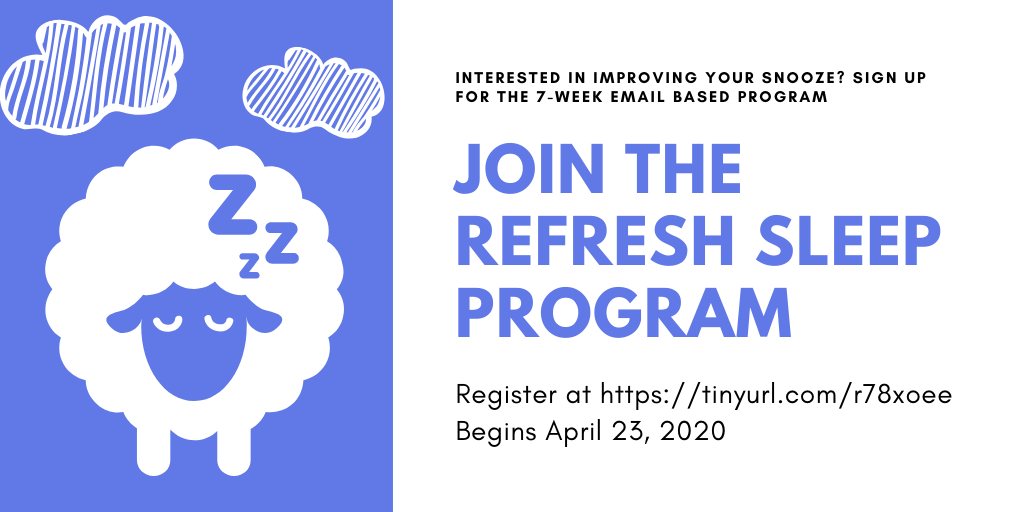 (Graphic courtesy of DePaul Health Promotion and Wellness)
(Graphic courtesy of DePaul Health Promotion and Wellness)Getting enough sleep is always a topic for conversation. We are notorious for not getting enough sleep and/or quality sleep. Despite being at home during the coronavirus pandemic, we hear from many students, staff and faculty that their sleep patterns have become even worse. Falling asleep and getting enough quality sleep pose many challenges for us.
Often times we cannot fall asleep because it is the one time of the day where we truly give our minds and bodies time to pause, rest and relax. Throughout the day we are often running from one activity to another and barely giving ourselves a moment to breathe and think, let alone give our minds and bodies time to rest, relax and recharge throughout the day.
This is often why we hear many people say “I just can’t shut my mind off before sleep.” This is because we are not giving ourselves breaks and time to rest throughout the day. To add on to that, we have many worries and new stressors as we are trying to navigate remote learning, working, relationships and especially living in a house full of our family members, roommates, pets or even living alone. Each day comes with its own set of challenges, worries and uncertainties. But, let’s take some time to focus on something we do have control over, our sleep health.
Here are some tips to recharge your sleep:
- Understand your sleep. Calculate the average amount of sleep you get each night and how much you think or want to strive for (in hours). While six or nine hours can be appropriate for some adults, most need seven to eight hours. Strive to go to bed and wake up at the same times.
- Limit screen time. Take breaks throughout the day and try to cut off your screen time an hour or more before bed. This is a great time to try a night routine and add activities before bed that do not require screen time. Herbal tea and a book are a great before sleep activity!
- Try breathing exercises. Count from 10 to one backwards very slowly – inhaling and exhaling deeply. You can put your hand on your stomach and feel your breaths. Want more? Try a meditation app with guided meditations for sleep.
- Set boundaries. Too much information about COVID-19 can be overwhelming. Stay informed but avoid being overloaded. It can be helpful to avoid reading updates before sleep.
- Minimize day time naps. Some of us love cat naps during the day. If this is you, aim for that sweet spot of 20 minutes and before 2 p.m.
- Enhance your sleep environment. Dark curtains to block out any light, white noise machines and cooler temperature can be helpful to make your bedroom more conducive to sleep.
- Add structure. A morning and night routine can help us wake up and prep for the day as well as set us up for a good night’s rest. Creating a routine can help your body signal for daytime and night time. Give it a try!
- Reduce blue light. This can include cool glasses that block the blue light and/or adjusting the light settings on your screen to be dimmer and adding an orange tint. Also, try experimenting with the lights in your room by using natural light as much as possible and avoiding harsh bright lights.
- Add me time. Self-care is essential and a top priority. Prioritize yourself by doing one thing every day that allows you to recharge and supports your health and well-being.
Want more sleep tips?
Register for Refresh Sleep — a seven week email based program to help you improve your snooze — and join us on April 22 at noon for more sleep tips with DePaul professor Marty Martin.
Register on DeHUB.
Take Care DePaul!